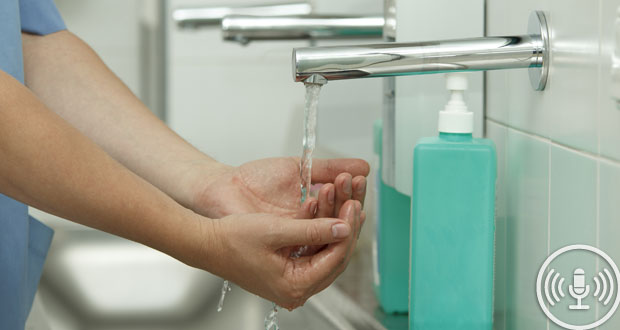A national hand hygiene initiative has been successful in reducing golden staph infections, but its cost-effectiveness varied across the states and territories, a study has found.
Professor Nicholas Graves, from Queensland University of Technology’s Institute of Health and Biomedical Innovation, conducted a National Health and Medical Research Council-funded evaluation of the National Hand Hygiene Initiative (NHHI), which promoted the ‘five moments of hand-hygiene’ to highlight critical times for health workers to wash their hands to control infection.
The study evaluated data from 50 Australian hospitals across all states and territories from 2009 to 2012. The extra costs of the program were calculated and compared with the extra years of life gained. Graves said: "The extra $2.9 million bought us only 96 years of life [each year] for the whole country, this is about $29,700 per life year gained."
The report concluded that the NHHI was cost-effective, compared with a benchmark of $42,000 per year of life gained, but Graves said the return on investment varied among the states and territories. For example, Queensland got better value for money than Western Australia, where infection risks were already low.
“A similar story emerged for Tasmania, where no cases were prevented and $250,000 was spent," Graves said. "In the ACT, where 10 cases were prevented, it cost $1030 per life year gained, and this was a true bargain.
“We know that healthcare costs are spiralling upwards and that we will never have enough money to fund all the prevention and treatment we would like. Health economists look at the cost-effectiveness, or value for money, of health interventions to identify where health dollars are being used efficiently.”
Graves said other research that had evaluated a variety of interventions for prevention, screening, diagnosis and treatment had shown a year of life could be gained for $18,720, and a large number of programs cost under $10,000 per year of life gained.
"Policymakers could take note of the variability between states and tailor hand-hygiene campaigns to the local conditions," he said.
Do you have an idea for a story?Email [email protected]
 Aged Care Insite Australia's number one aged care news source
Aged Care Insite Australia's number one aged care news source

